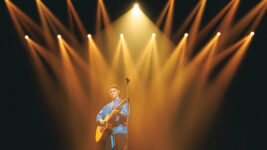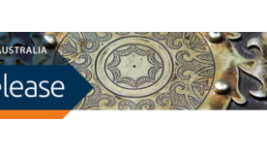News
9 Aug 2023
58 Austrian Audio Mics Support Open-Air Concert of the POZNAŃ PHILHARMONIC ORCHESTRA
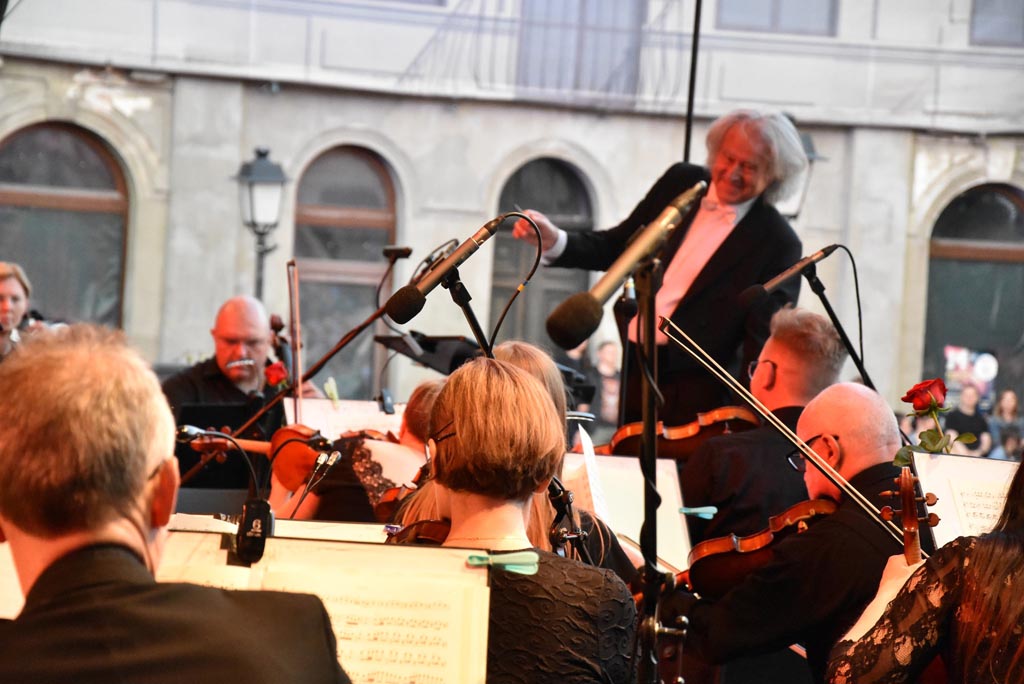
Subscribe to CX E-News
Putting on a high-caliber philharmonic open air concert comes with a number of challenges. The sound of the orchestra needs to be amplified for the large audience in the most natural way possible. One of the key elements in doing this is to choose the microphones that are best suited to each instrument, and mics that are designed to perform well in a loud, concert environment.
Radek Barczak, the Music Director for this particular concert, summed up the feat of the Poznań Philharmonic Orchestra concert in Poland: “This was probably the largest sound capture with Austrian Audio microphones in the world. Producing a large symphony orchestra concert is quite an equipment challenge! Prior to the Poznań Philharmonic concert, our agency, ViolinArt, already owned an arsenal of Austrian Audio microphones: we had 16 CC8s, 4 OC818s, 4 OC18s, an OC16 and an OD5, but we couldn’t put on the concert without additional Austrian Audio mics. Thanks to the strong support of two companies – the Polish distributor ESS Audio, who quickly imported 20 CC8 microphones for us, and Mateusz Szternel’s Music Service rental company, who exchanged their 4 CC8s and 2 OC16s for our 4 Neumann KM184s and 2 AKG C314s, we were able to obtain what we needed.”
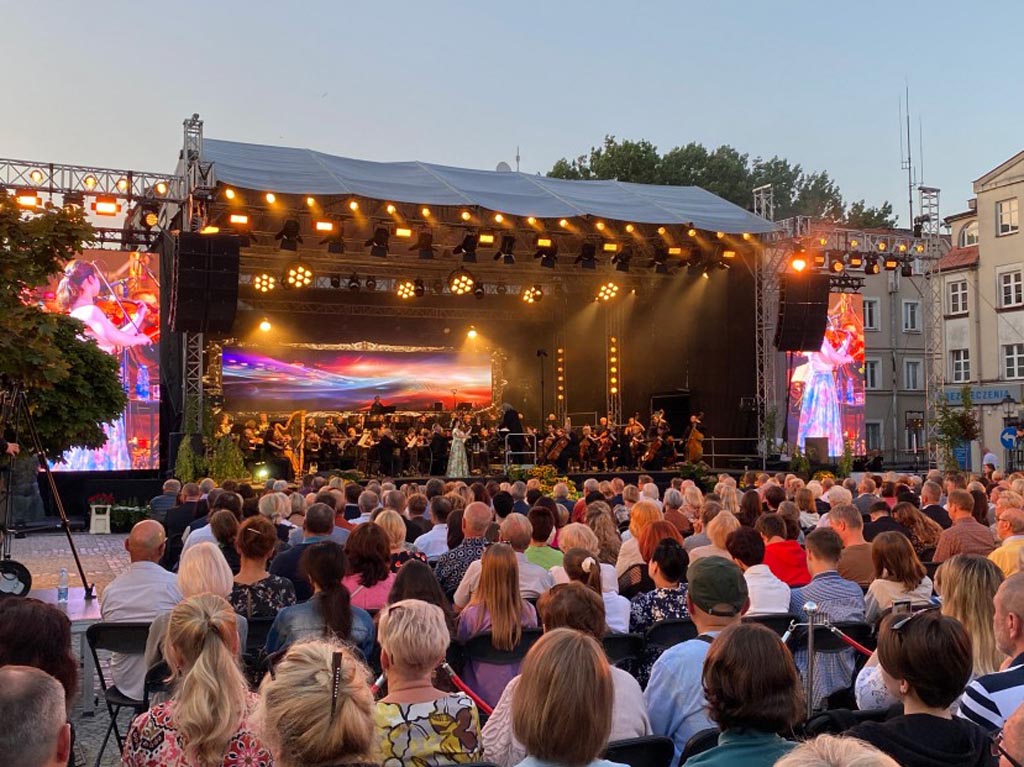
Austrian Audio microphones are different, unconventional and do not simply copy the ideas of other manufacturers. One of the most important features is their linear frequency response, with no artificial top end boost. The signal is captured with full, precise detail, and a smooth high-end that translates the orchestral instruments naturally.
“The first time I worked with the Austrian Audio OC818 microphones was during the pandemic in 2020, when we put on a series of streaming classical music concerts from the Wawel Royal Castle in Krakow. At the time, we had AKG C414 XLS and Neumann KM184 rider microphones at our disposal and I tested and paired the Austrian Audio OC818s with these highly regarded microphones.”
Barczak finds that the Austrian Audio mics have a more natural sound – they transmit the sound exactly as we hear it. “Most microphones have a boosted upper band. Now imagine 60 condenser microphones on stage with a 12 line array sound system per side and double basses and cellos almost directly underneath them – and each microphone has a boosted top? Thanks to Austrian Audio mics’ natural, unhyped frequency response, there is no need for a lot of EQ and there is no need to struggle to achieve a natural violin sound, for example, by eliminating high-frequency jitter.”
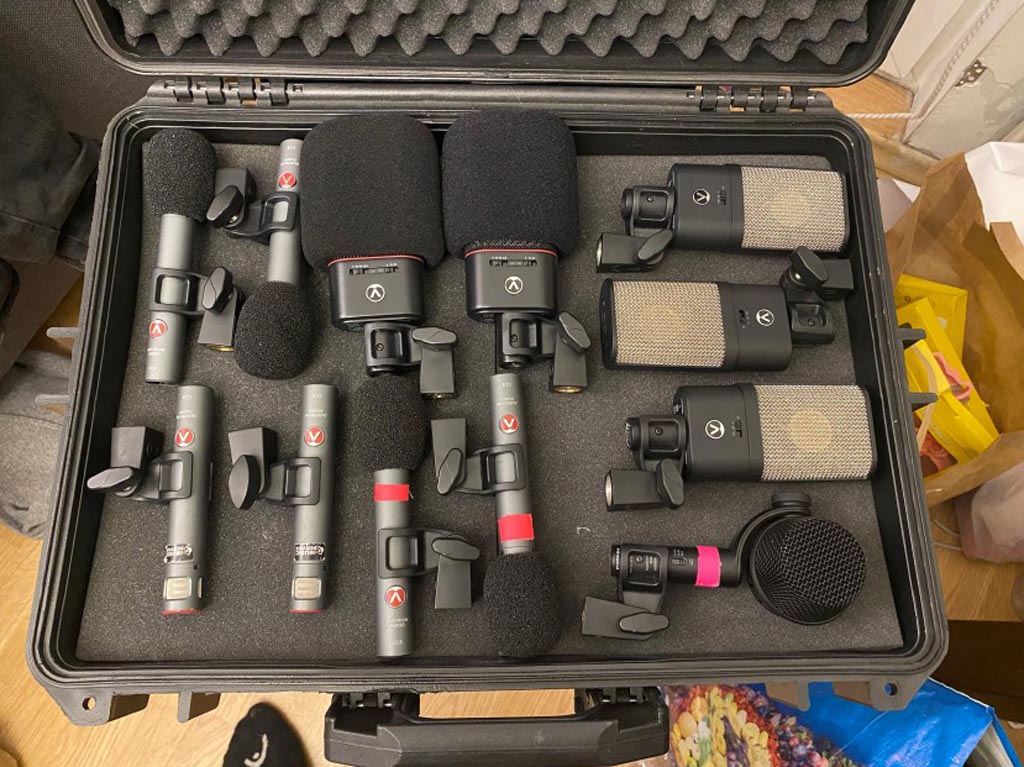
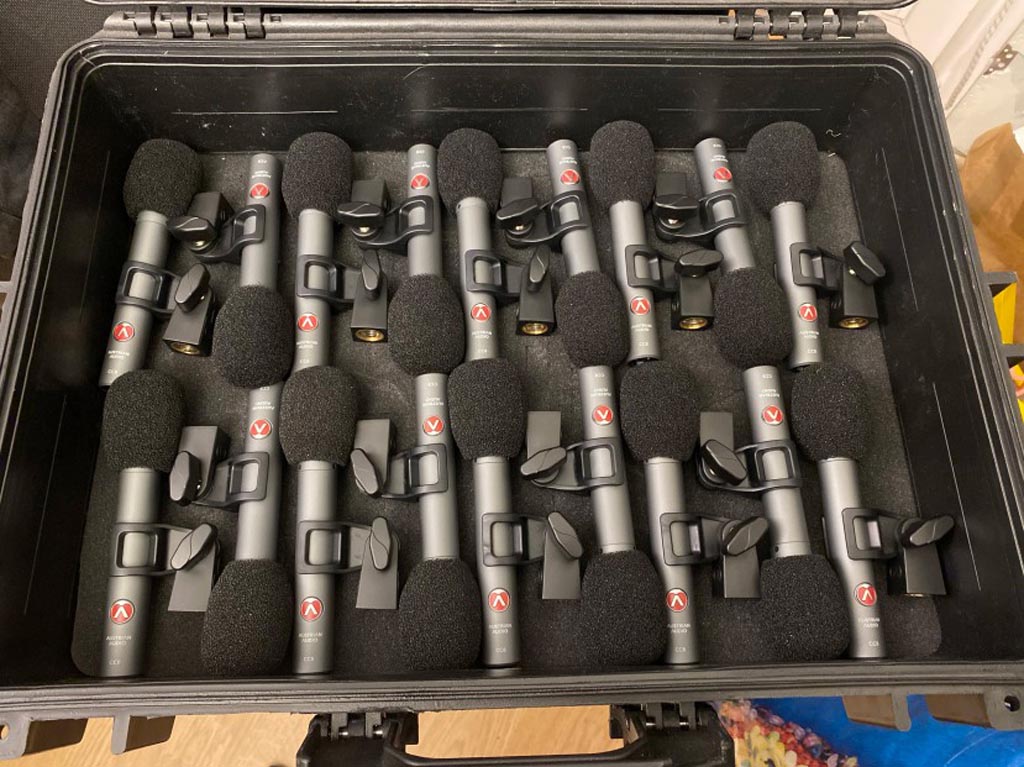
Austrian Audio’s condenser microphones work well in a wide variety of situations – on drum kit overheads, on solo instruments or sections (violin, cello, as well as trumpet, trombone and french horn), as the main stereo pair for orchestra sound reinforcement, but also on guitar amps, bass amps and Leslie speakers. On vocals, the OC818 / OC18 and CC8 signals take compression very well.
The Poznań Philharmonic Orchestra performed in Konin with a line-up of 20 violins, 7 violas, 6 cellos, 4 double basses, harp, 4 french horns, 2 flutes + piccolo, 2 oboes, 2 clarinets, 2 bassoons, 3 trumpets, 3 trombones, 4 timpani, gran casa, snare drum and 2 stands of percussion. Since Barczak chose the right microphones for each instrument and section – CC8s for the entire string quintet, woodwinds and overhead percussion, OD5s on timpani and snare, OC818, OC18, and OC16 on brass and an additional stereo pair of OC18s over the conductor and OC18s with an additional AKG C480B ULS CK69 shotgun for the solo violin, all that was needed was an 80% gain match on STUDER preamps to a Soundcraft Vi1000 and most of the work was done. No need to sculpt the EQ and rescue from coupling with the front sound system.
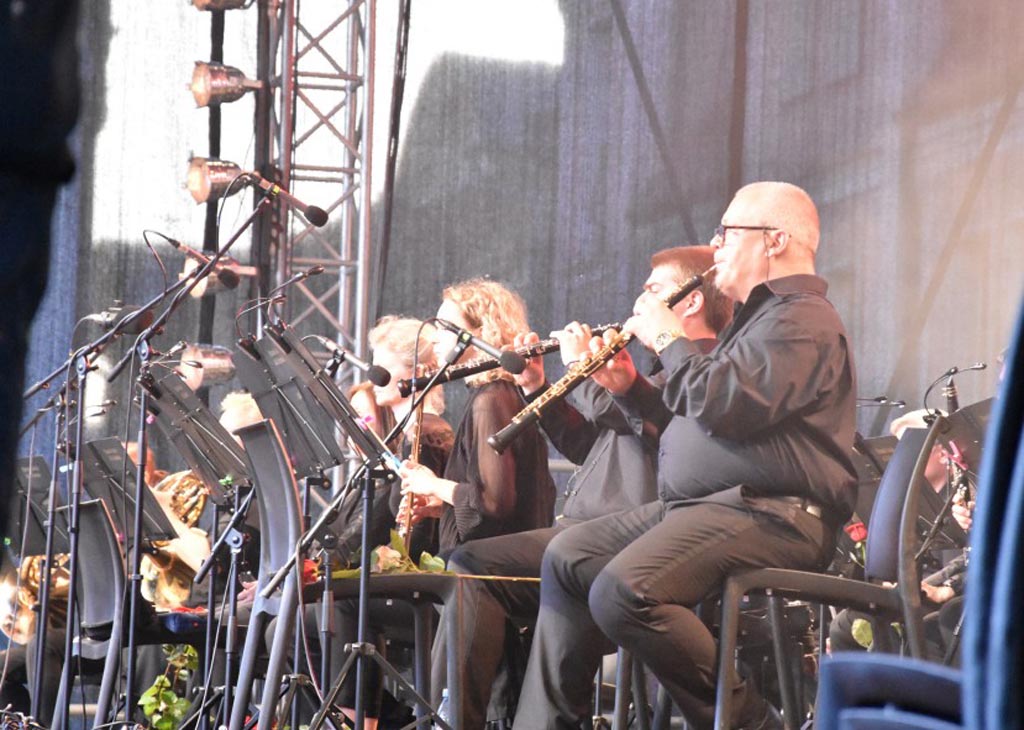
Recreating the orchestra’s sound consisted of delaying signals of the individual microphones to match a stereo XY pair from an Austrian Audio OC18 over the conductor’s head. A final touch was added to the sound by Lexicon reverbs from a Soundcraft Vi1000 console and a 1993 Roland SRV-330 external reverb processor with superb 3D surround reverb. The result was a full and natural representation of the orchestra for the audience.

Microphone set-up at the concert:
- – 40x Austrian Audio CC8,
- – 4x Austrian Audio OC818,
- – 6x Austrian Audio OC18,
- – 4x Austrian Audio OC16,
- – 4x Austrian Audio OD5,
- – 1x AKG C480B ULX CK69,
- – 1x Neumann MCM114 (harp in resonance box).
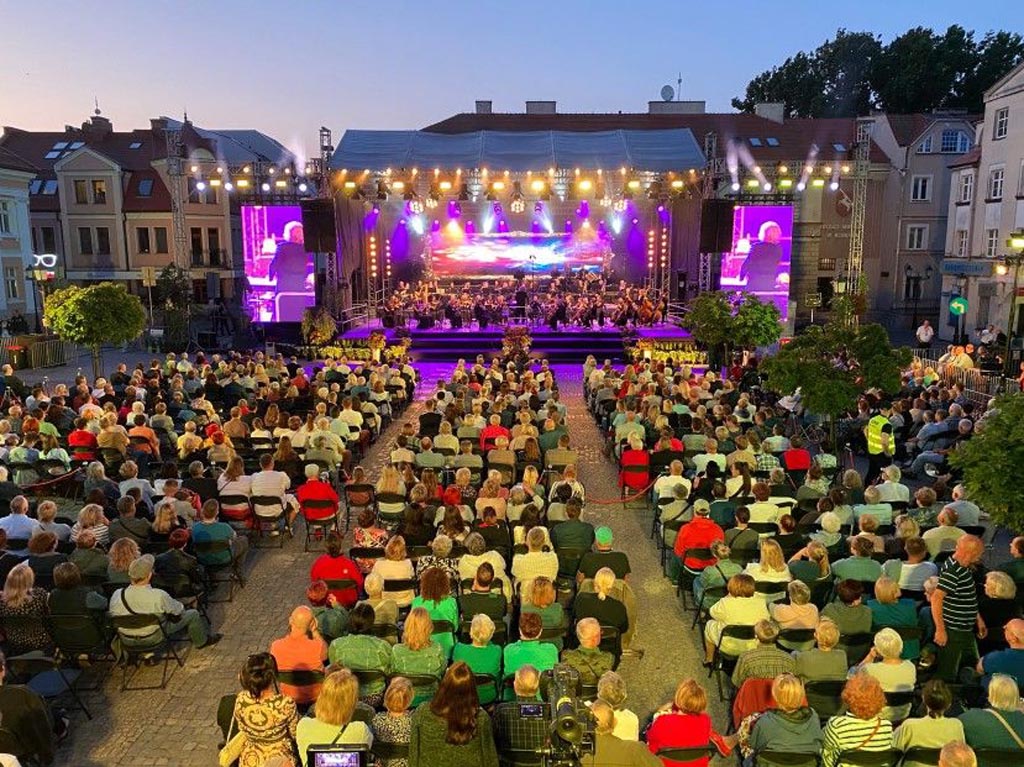
- Console: Soundcraft Vi1000 + large stagebox by STUDER 64/32 connected by fibre optic cable
- FOH sound system: 6x L-Acoustics K2 per side + 2x SB28 per side
- Front-fill sound system: 2x L-Acoustics X12
- Side-fill stage sound reinforcement: 4x L-Acoustics X12 (two stereo pairs)
- Realisation of the mix and omicrophone: Radek Barczak / Artistic Agency ViolinArt
- Sound realisation: FOTIS SOUND
- Sound crew: Przemysław “Tonsil” Koserczyk, Andrzej Drygas, Moris, Jacek Edward Minecki, Tomasz Koserczyk
- Photos, mix and mic setup made by Radek Barczak and his Agencja Artystyczna ViolinArt.
Subscribe
Published monthly since 1991, our famous AV industry magazine is free for download or pay for print. Subscribers also receive CX News, our free weekly email with the latest industry news and jobs.

